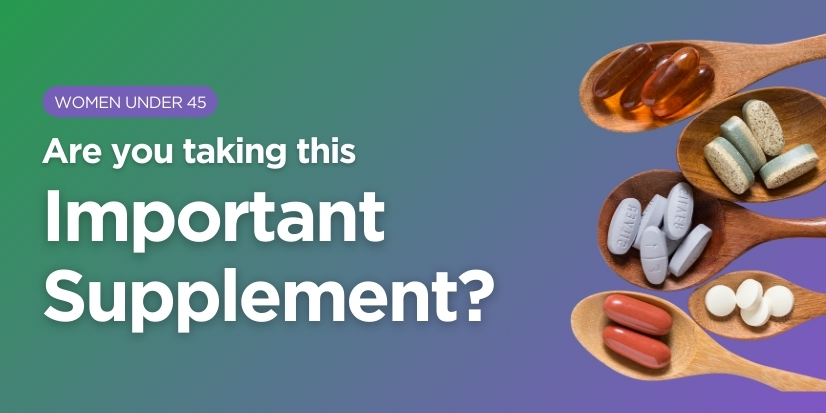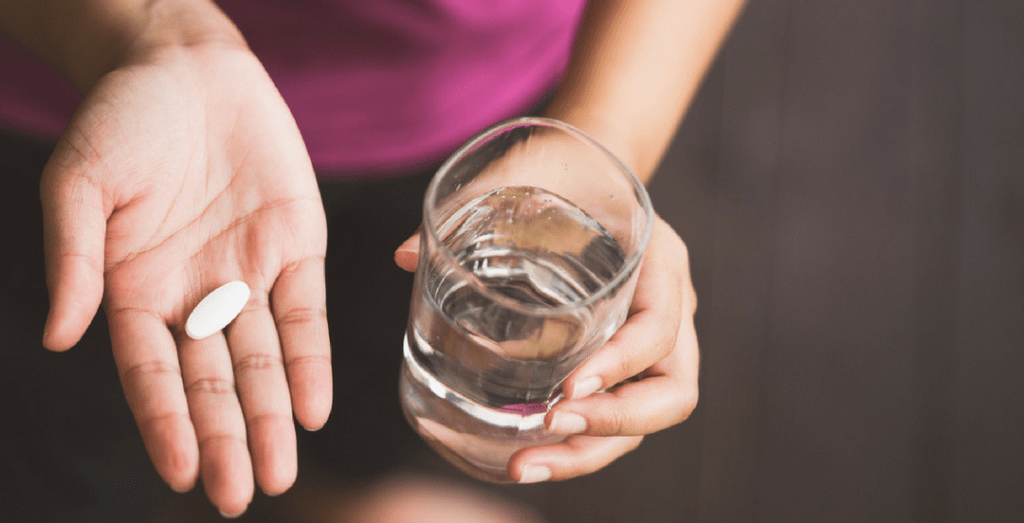Women Under 45 Should Take This Supplement Every Day
- Category: Women's Health, Motherhood & Pediatrics
- Posted On:
- Written By: Dr. Kirk Lammi

Drugstore shelves are lined with supplements these days. You likely won't see your OB/GYN endorsing most supplements, but there's one that they do: Prenatal vitamins.
Dr. Kirk Lammi, OB/GYN at our Women’s Center at McKay Dee Hospital, says “We want every woman in childbearing age to take a daily prenatal vitamin—even if she isn’t planning to become pregnant.” Here are the reasons why.
What is in a prenatal vitamin?
Prenatal vitamins were developed for women who are trying to conceive and those who are currently pregnant. During pregnancy, a woman's nutritional needs change to nourish the developing baby, and prenatal vitamins help fill in gaps that aren't always achieved with diet.
I'm not planning to have a baby soon, why should I take a prenatal vitamin?
Swapping your women's multivitamin with a prenatal vitamin is safe for most people, since the nutritional profiles are similar. But the most important reason to take a prenatal vitamin every day is to ingest enough folic acid.
"Up to 50% of pregnancies are unplanned," says Dr. Lammi, "And folic acid is incredibly important in early pregnancy. Without enough of it, serious issues like spina bifida and neural tube defects can occur in the fetus."
OB/GYNs strongly encourage women to ingest at least 400 micrograms (mcg) of folic acid every day, and it's beneficial to have it in your system before you become pregnant and throughout pregnancy.
Which foods have folic acid?
Folic acid (or folate) can be obtained from food sources like dark leafy vegetables and beans, but most women are not hitting the recommended amount consistently. Taking a daily prenatal vitamin ensures that you’re ingesting 400 mcg daily.
What else is in a prenatal vitamin?
These vitamins and minerals are also important, both for female health and for those who are currently pregnant.
Iron
“There’s a 50% increase of blood plasma during pregnancy as your body prepares for delivery. Supplementing with iron builds up the red blood cell mass to prevent anemia during childbirth,” says Dr. Lammi.
Vitamin D and Calcium
The benefits are two-fold with calcium and vitamin D: “For babies, these vitamins ensure healthy fetal skeletal development and reduce the first of intrauterine growth restriction,” says Dr. Lammi. He also states that women begin losing bone mass in their 30s, so taking these two vitamins together will help prevent bone density loss and osteopenia later in life.
Iodine
Women run the risk of hypothyroidism with too little iodine, so most prenatals contain a small amount. Fortunately, iodine is one mineral that's easily achieved in most diets.
Warning: More is not always better.
Vitamin A and iron are two examples that can be toxic at high levels to a mother or her baby. "As important as supplementing in pregnancy is, don't take extra prenatal vitamins unless directed by your doctor," Dr. Lammi says.
Which brand of prenatal vitamin is the best?
“Keep it as simple and affordable as possible; the most important thing is that you actually take it,” says Dr. Lammi. “Sometimes women don’t tolerate prenatal vitamins containing iron. If you find that's the case, please don’t give up on taking them. Switch to a gummy prenatal or another type without iron and then talk to your doctor about obtaining iron another way.”
“Get that folic acid in your system and please take it throughout your reproductive life."
***

Dr. Lammi is an OB/GYN at our Women’s Center in McKay Dee Hospital. He performs prenatal care, delivers babies, and handles many gynecological services for women of all ages. To request a visit with Dr. Lammi, contact his office at 801-475-3100.